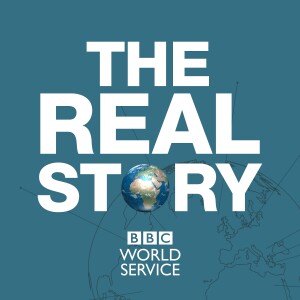
The Haitian government declared a 72-hour state of emergency on Sunday. It follows the storming at the weekend by gangs of two prisons, with some 3,700 inmates escaping. The gang leaders want the resignation of Prime Minister Ariel Henry, with one of them (Jimmy Cherizier, aka Barbecue) saying there will be civil war if Mr Henry does not go. Mr Henry had travelled to Kenya to discuss the deployment of a UN-backed security mission in Haiti, but is now in Puerto Rico after his plane was denied permission to land in Haiti. Gangs are now estimated to control most of the capital, Port-au-Prince.
Haiti is the poorest country in the Americas with a history of political instability, dictatorships and natural disasters. It became the world's first black-led republic and the first independent Caribbean state when it threw off French colonial control and slavery in the early 19th Century. But it was forced to pay crippling reparations to France, which demanded compensation for former slave owners. That "independence debt" was not paid off until 1947 with many Haitians saying that it has prevented the country from developing and moving forwards. So, how has Haiti’s history shaped its present? And can it break free from its past and, if so, how can it do so? Celia Hatton is joined by a panel of experts:
Monique Clesca - A Haitian journalist, writer and advocate in Port Au Prince.
Professor Marlene Daut - A Haitian American Professor of French and African American Studies at Yale University.
Alex Dupuy - A Haitian born academic who has retired after a long career as Professor of Sociology at Wesleyan University in Middletown, CT. He's authored many books on Haiti's history and development.
Image: People run down a street in Port-au-Prince, Haiti escaping from gang violence. Credit: Johnson Sabin/EPA-EFE/REX/Shutterstock
More Episodes
 2021-02-12
2021-02-12
 2021-02-05
2021-02-05
 2021-01-29
2021-01-29
 2021-01-22
2021-01-22
 2021-01-15
2021-01-15
 2020-12-18
2020-12-18
 2020-12-11
2020-12-11
 2020-12-04
2020-12-04
 2020-11-27
2020-11-27
 2020-11-20
2020-11-20
 2020-11-13
2020-11-13
 2020-11-06
2020-11-06
 2020-10-30
2020-10-30
 2020-10-23
2020-10-23
 2020-10-16
2020-10-16
 2020-10-09
2020-10-09
 2020-10-01
2020-10-01
 2020-09-25
2020-09-25
 2020-09-18
2020-09-18
Create your
podcast in
minutes
- Full-featured podcast site
- Unlimited storage and bandwidth
- Comprehensive podcast stats
- Distribute to Apple Podcasts, Spotify, and more
- Make money with your podcast
It is Free
- Privacy Policy
- Cookie Policy
- Terms of Use
- Consent Preferences
- Copyright © 2015-2024 Podbean.com



